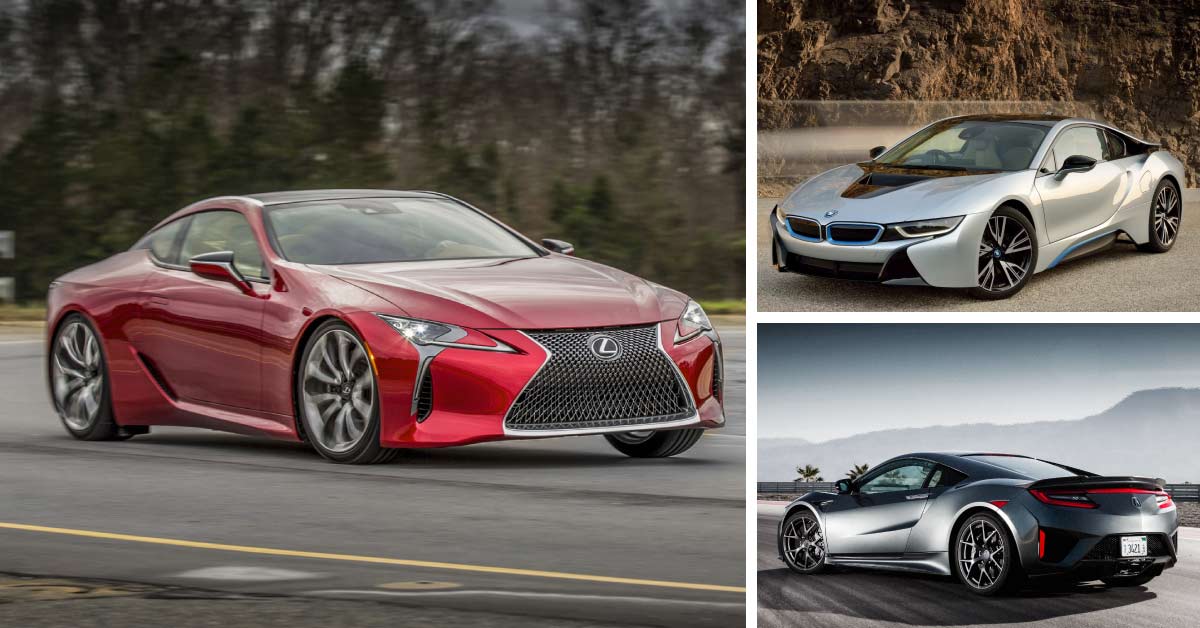Hybrid vehicles are the talk of the town in 2020 as they are considered to be the next big upgrade that the consumer market is likely to make in the automobile industry!
The automobile industry has generally been quite stagnant with no major breakthroughs in technology for the last 50 odd years. All changes made to the cars during these times were minor upgrades to their existing frameworks that allowed them to function a bit more efficiently in modern roads. The most changes we have witnessed in the industry are the visual upgrades with cars now looking like machines from the future! However, once you open the hood of that very same car, chances are you’ll find similar technology to most commercial cars powering it.
The Challenge
The hybrid and electric car revolution that’s just starting to grow have some innate challenges that it needs to address before it can become a viable option in the consumer market. For those who do not know, the electric vehicles or EVs as they are more commonly referred to are not actually new to the market.
Car manufacturers have been releasing EVs since the 90s and the technology was available to us even before that! So why have people not adopted this newer and more efficient technology?
The answer is infrastructure. Introducing this new technology in the market would require a major overhaul of the entire infrastructure that supports the modern global network, a feat that is nearly impossible to achieve worldwide at one go! All gas stations need to be replaced by charging stations, production of batteries needs to be increased and people need to be educated at the same time. Now, this needs to happen in all the countries of the world at once as car manufacturers will not be able to produce both types of vehicles efficiently as it will cost labour, R&D and a multitude of other variables to fall into place. This is simply not viable!
The other alternative is slowly making a change towards these greener options. Car manufacturers have been rolling out EVs consistently since the turn of the millennium but their production has been severely limited due to these challenges.
First world countries are now only slowly making a shift towards EVs with countries like the US and Canada leading the race in the West and countries like Japan, South Korea and China leading the revolution in the East. The UAE is also a major player in the EV market having invested millions in order to drive consumers towards more energy-efficient solutions. However, with most developing and under-developed countries sticking to combustion engines, a total overhaul of the industry seems far fetched.
The Future
Now, this isn’t to say that the change is not evident! There has definitely been a shift, both in governance and the mindset of the consumer, towards a more greener tomorrow. It seems people are aware of both the problems as well as the challenges and are hence, striving to work together in order to transform the automobile industry as we know it. Countries like the US and Canada have been providing funds to common people who want to make the upgrade to EVs from traditional vehicles and this has enabled a lot of customers to make the shift despite being short on resources.
Governments have also been investing in the infrastructure that is required to support these vehicles and the result is showing. Japan and China are a glowing example of the ways a government can implement change quickly through combined efforts and strategic planning.
The Hybrid Price War
The main reason behind the expected price war in 2020 is mainly due to governments imposing heavy fines on carbon emissions forcing car manufacturers to take a second look at their line of vehicles. The EU has recently increased the fines for car manufacturers that exceed their set limits of CO2 emissions (presently at 95g a kilometre) and this has resulted in car manufacturers scrambling to make more energy-efficient options available to their consumers. The challenge lies in not only making these vehicles available in large numbers to the general populace but also in making them more affordable. It is estimated that a whopping £7.1bn will be wiped from the profits of the car manufacturer’s in the next two years as a result of this change.
Therefore, it can be safely said that all car manufacturers will target new and emerging markets in order to strive for balance and this will inevitably result in a price-war between manufacturers, much to the joy of consumers worldwide. Fair and aggressive competition between leading forces often results in a total overhaul of the entire industry. Newer technologies are often standardized through such competitive markets and hence, it can be safely said that despite the losses, the industry will actually benefit from such a change.
The EU has stated that the green credentials of most plug-in hybrids are average at best because consumers do not tend to charge their vehicles as often as they should. This is mainly due to the fact that gas stations are way more accessible and takes only a fraction of the amount of time that would take to charge the battery. Hence, people tend to just fill up gas instead of charging their hybrids and this results in a lot more pollution than an average combustion-engine vehicle. This is because the size of the engines of these hybrids is smaller when compared to normal fuel-driven vehicles and when run on gas alone, they tend to lose their efficiency thus resulting in greater CO2 emission.
According to Julia Poliscanova, clean vehicles director at Brussels-based think tank Transport & Environment, “In the real world, their emissions are often two or three times higher”.
The Conclusion
While the increased competition between leading players in the automobile industry will lead to newer technologies and innovations, this change could not have come at a more unfortunate moment. The market in China has been suffering heavily from recession for the last two years, that too before the coronavirus outbreak. With the pandemic now spreading globally, it is sure to have an impact in all sectors including the automobile industry. The Brexit uncertainty has also not helped the European market and has resulted in distrust among consumers towards manufacturers in general.
While hybrids are more energy-efficient, they are not really the answer to our question here. Companies are relying heavily on hybrids as they can manufacture it easily without having to invest too much into infrastructure. This is because the existing factories can easily handle the manufacturing of hybrids with a few tweaks to its working procedure. This makes it an extremely attractive option for car manufacturers as they are able to market a greener vehicle without having to overhaul their entire manufacturing process. However, these cars are significantly more expensive than pure EVs as people are locked into two types of technologies that are complementing each other loosely. In any case, governments need to closely monitor the industry and the scenario as it unfolds so as to properly regulate CO2 emission while mitigating most challenges associated with it.







